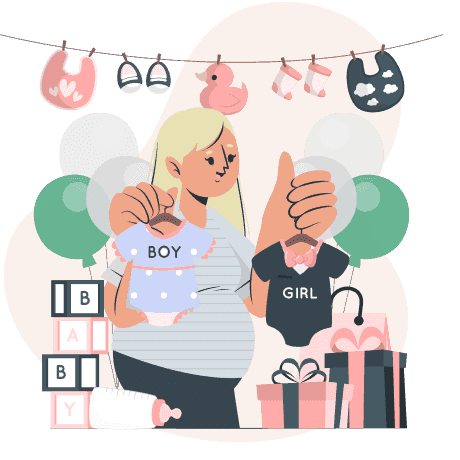The Final Stretch: What New Moms Should Know About the Third Trimester and How to Cope
The third trimester of pregnancy is an exhilarating yet challenging time, filled with anticipation for the imminent arrival of your baby. As you approach the finish line, there are some essential considerations to take into account for both you and your baby's well-being. Here are some top things new moms would want to know during the third trimester and tips on how to cope.
1. Prepare for the Arrival:
The third trimester is a great time to finalize preparations for your baby. Make sure the nursery is ready, baby-proof your home, and pack your hospital bag. Ensure all essentials—diapers, clothing, feeding supplies, etc.—are organized and easily accessible.
2. Attend Regular Check-ups:
Regular visits to your healthcare provider become increasingly crucial during this stage. These appointments allow your doctor to monitor your baby’s growth, check the position, and assess your vitals. Make sure to communicate openly with your healthcare provider and address any concerns you might have.
3. Recognize Signs of Labor:
It's essential to know the signs of labor, which can include contractions, water breaking, and losing your mucus plug. Some women also experience nausea or a burst of energy right before labor. Knowing these signs can help you prepare for the big day and relieve some anxiety.
4. Understand Braxton Hicks:
Many women experience Braxton Hicks contractions, which are "practice" contractions that help prepare your body for labor. These are generally irregular and less painful than true labor contractions. Learning to differentiate between the two can be helpful.
5. Learn Breathing Techniques:
Breathing exercises can help manage stress and may come in handy during labor. Consider taking birthing classes that focus on breathing techniques, positions for labor, and other coping mechanisms.
6. Nutrition and Hydration:
Maintaining a balanced diet is still crucial. Focus on nutrient-rich foods that are high in protein and low in sugar and fats. Keeping hydrated is also essential, particularly because dehydration can sometimes trigger premature contractions.
7. Keep Moving, Within Limits:
Gentle exercise like swimming, walking, or prenatal yoga can help alleviate some common third-trimester complaints like back pain and poor sleep. Always consult with your healthcare provider before starting or continuing any exercise regimen.
8. Plan Your Maternity Leave:
If you're working, now is the time to finalize your maternity leave plans. Make sure your employer knows your anticipated due date and discuss any work you need to wrap up or delegate before you're off.
9. Nesting Instincts:
Many women experience a "nesting" instinct in the third trimester, characterized by a sudden urge to clean, organize, and prepare for the baby. Listen to your body but don't overexert yourself.
10. Emotional Readiness:
It's normal to feel a mix of excitement and anxiety as your due date approaches. Emotional support is crucial during this time. Open lines of communication with your partner, family, and friends. Consider joining a pregnancy support group to share experiences and tips.
11. Optimize Sleep:
Sleep might become more challenging due to your size and possible discomfort. Using pillows to support your back and legs can make sleeping more comfortable. Rest whenever possible; your body is working hard!
12. Get Ready for Postpartum:
The arrival of your baby will bring about another set of challenges and joys. Consider reading about breastfeeding, infant care, and postpartum recovery to better prepare yourself for what comes next.
The third trimester is a period of rapid growth and emotional highs and lows. While there's much to consider and prepare for, remember that you're on the verge of one of the most incredible experiences of your life—becoming a mom. Keep in close contact with your healthcare provider, lean on your support network, and most importantly, listen to your body. You've got this!

